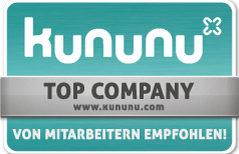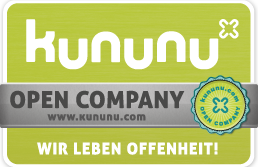Ready for activation – the PROMOS EED/consumption data solution has you prepared for everything
PROMOS News: Mr Krause, what immediate obligations and challenges are now facing the housing industry?
Dirk Krause: The implementation of the EED in national law is now coming into force along with the amended German Heating Costs Ordinance, which stipulates that consumers be provided with more information in future. According to the new requirements, tenants and residents of homes with heat and hot water meters that can be read remotely must be informed about their consumption data throughout the year. And that’s starting on 1 January 2022, so the clock is ticking fast.
This causes additional expenses for property managers and owners since they need new workflows and processes. Some of the processes that our customers have carried out once a year for utility statements, for instance, must now be carried out monthly. This therefore requires services that enable a continuous process – from the determination of the consumption information to its preparation, transmission, processing and provision to the tenant, member or owner – in order to reduce the expenses to a minimum.
PROMOS News: Exactly, the effort for housing companies should be kept as low as possible. Mr Stransfeld, how does PROMOS consult support its customers?
Christian Stransfeld: Our expertise – gained over 20 years on the market, mind you – lies in SAP® development. We close gaps and find ways to ideally map our customers’ housing business processes in their ERP systems. And that’s exactly what our EED solution does. We offer an SAP® ERP-integrated service encompassing all data logistics – so from connecting commissioned service providers via web services, quality assurance, transfer and processing of delivered data or its transparent representation in the ERP system at the level of rental object and contract. The ERP system is home to all inventory data and structures, and we help our customers to map consumption data there. If the customers want that. Our guiding principle is still to enable housing companies to manage their own services themselves and to contribute to the added value with little effort.
In addition, we also support our customers in the creation of digital documents and in forwarding the consumption information to their users each month.
PROMOS News: There has been a heated discussion so far over the transmission of monthly consumption data and how to correctly implement it. How does the PROMOS solution deal with this requirement?
Krause: We’ve had many discussions over the past few months and weeks and have encountered great uncertainty about the concrete interpretation of the rules. How should our clients legally inform their customers? By post, with an electronic document or is it sufficient to provide the data in a portal? And how should these requirements be reflected in our standard system? We tackle this uncertainty with a flexible solution where customers can define for themselves which delivery route is best for their situation. Be it the connected customer app for tenants or owners from easysquare or any other provider, a web portal provided by PROMOS, or dispatch by e-mail or post – it’s all no problem. Our modular solution approach lends us the necessary flexibility to respond to the customer’s existing system requirements and adapt the solution in a quick, straightforward manner.
Stransfeld: Hybrid models are also conceivable. Just imagine, for example, that the housing company doesn’t have an up-to-date e-mail address for all residents. In this case, different delivery options could then be used via different channels.
PROMOS News: So the more successful the onboarding, the more likely you can do away with sending paper documents?
Stransfeld: Yes, definitely! In order to take the directive’s environmental principles into account, PROMOS supports its customers in providing digital information channels. It’s important to replace the customer’s manual processing effort with a high level of automation in the system. The tenant or owner can register for the tenant app with their e-mail address, and the consumption information is then provided via the app. The paper letter is thus obsolete. Alternatively, the existing e-mail addresses in the inventory data can also be used to send the information digitally via e-mail. And let me close by saying once again that companies have been focusing on sustainability for a long time, not just because of rising energy prices or the construction of climate-neutral buildings. Property managers, residents and the environment alike all benefit from this.
PROMOS News: And to what extent does the Energy Efficiency Directive affect the digital agenda for housing companies?
Krause: With professional implementation of the new requirements, the statutory obligations can be turned into a real opportunity to rethink and link processes. Digitisation doesn’t happen overnight, but implementing the EED requirements is a good first step or an excellent starting point for addressing related digitisation issues. However, the customers are the ones who determine when, how and in what form digitisation is pushed ahead at their companies. PROMOS is always there to help you with this, so feel free to contact us or check out our web seminar!
PROMOS News: Thank you for the interview.
Learn more about EED and monthly consumption data:
- Article "Easy, legally compliant implementation of EED requirements – current consumption data in the tenant app"
- PROMOS News "Conveniently implementing EED requirements – current consumption data in the tenant app"
- PROMOS News "EU Energy Efficiency Directive (EED) – How to give your tenants straightforward insight into their energy consumption"


